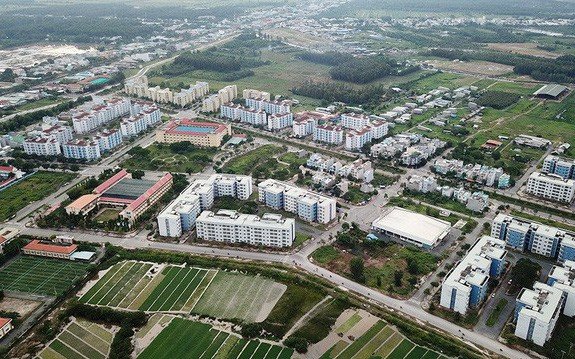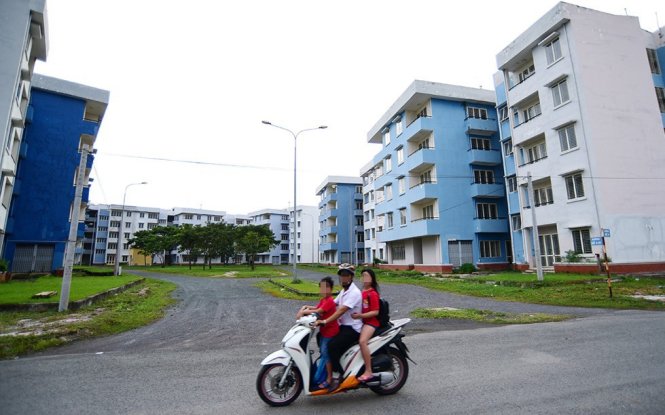Policies and mechanisms regarding relocation in Vietnam are proving ineffective as a large number of resettlement zones in Ho Chi Minh City and Hanoi have been abandoned for years.
Authorities in Ho Chi Minh City are mulling over an auction to sell 6,000 out of a total of 14,000 apartments for resettlement which have been deserted across the metropolis.
These homes were previously built for residents who had been asked to move out of their houses to make way for local infrastructure projects.
However, the State Audit Office of Vietnam assessed that multiple relocation zones were not efficient and had caused wastefulness to the city’s budget.
Among them is the Vinh Loc B Relocation Area in Binh Chanh District, which covers an area of 30.9 hectares.
The project was originally designed with 531 land parcels and 2,240 apartments, costing approximately VND542.9 billion (US$23.2 million).
The cost later increased to VND1.62 trillion ($69.2 million), while the number of apartments went down to 1,939.
As of 2017, seven years after the Vinh Loc B was put into operation, only 479 families moved into the apartments, while the other 1,460 units were still empty and have started degrading.
Many residents refused to relocate to the zone as it was too far from their previous homes, which were in District 1, Binh Thanh District, and Phu Nhuan District.
Several other resettlement projects in District 2, District 9, and Nha Be District are also behind schedule, causing their cost to skyrocket.
In Hanoi, the Sai Dong Resettlement project in Long Bien District has had its 150 apartments abandoned in the past decade.
The municipal Department of Construction has recently proposed auctioning various resettlement projects in the capital.
 |
| The Vinh Loc B Resettlement Area in Binh Chanh District, Ho Chi Minh City. Photo: Tuoi Tre |
Change in policies
According to Tong Van Nga, former deputy minister of construction, the best solution is to compensate the residents with money so they purchase a new home.
It is unreasonable to force people into resettlement areas, while there are plenty of houses for them to choose from the current real estate market, Nga continued.
“It is even worse when many homes for resettlement do not meet basic living standards,” he added.
Supporting the point of view, Pham Sy Liem, vice-president of the Vietnam Construction Association, believed that local authorities should focus on establishing proper policies instead of building too many resettlement homes.
Citizens should be allowed to select the houses that meet all of their needs and financial capacity, Liem said.
As the houses and apartments for resettlement are not built for sale, developers do not often pay attention to their quality, thus many of these homes now have bad design and low quality, he added.
Authorities should stop constructing more relocation projects to solve this issue, Liem recommended, adding that those that are abandoned need to be sold via auctions to prevent wastefulness.
Like us on Facebook or follow us on Twitter to get the latest news about Vietnam!





















































